HOME >> CHINA
The dying hospital
Source:Global Times Published: 2015-11-1 18:43:01
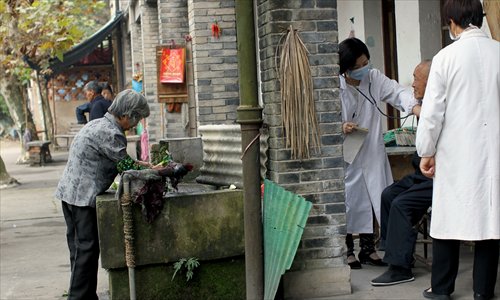
While doctors check a patient, his relative washes vegetables to prepare for lunch. Photo:Yang Hui/GT
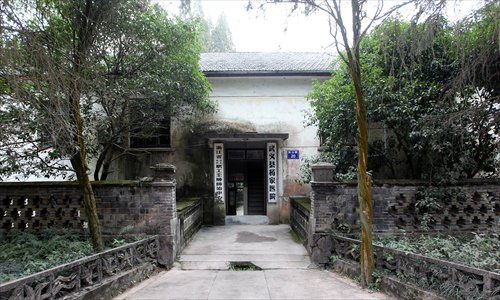
Yangjia Hospital is now in a state of disrepair. Two decades ago, there were hundreds of patients, but now there are only 30. Photo: Yang Hui/GT
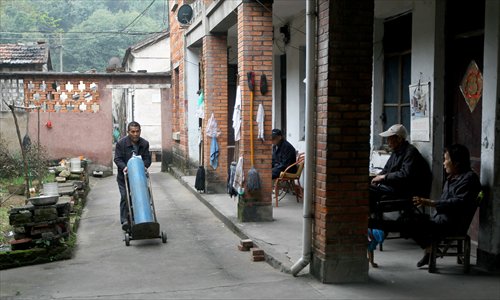
A person help patients to carry an oxygen bottle. Oxygen bottles are the most used piece of medical equipment at the lung hospital. Photo: Yang Hui/GT
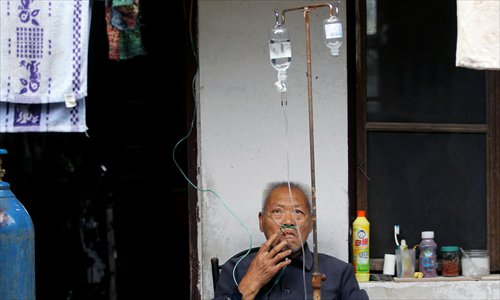
While on a saline drip, 74-year-old Wang likes to smoke, saying it helps to relieve his pain and boredom. Photo: Yang Hui/GT
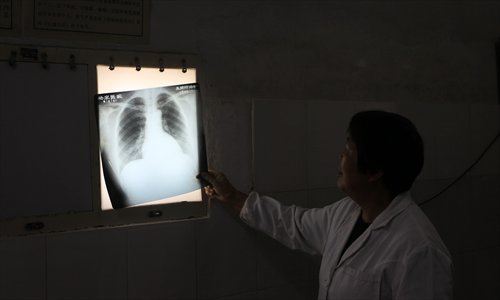
A doctor examines an X-ray. Photo: Yang Hui/GT
Wandering cats and grassy fields surround dozens of lonely dilapidated buildings standing on a mountain. They look like a deserted factory, but are actually a hospital.Located in Wuyi county, in the middle of Zhejiang Province, the hospital was once a lung hospital for employees of China's largest fluorite ore mining company - Dongfeng, a State-owned enterprise.
From 1958 onward, when the Great Leap Forward began, 2,500 miners worked here. Due to the absence of dust-controlling technology, dust filled the air of the mountain and underground. In 1966 alone, there were more than 800 patients in the hospital. Since then, dozens of lung patients have died each year.
Yangjia Hospital was built in 1962 to treat those patients. It was equipped with advanced medical equipment and 150 medical staff. In 2000, the mines on the mountain were used up and Dongfeng closed. But with dozens of deaths still occurring from lung disease each year, the hospital was kept open and transformed into a privately run hospital.
Due to a lack of funding, there are no toilets in patients' rooms and few staff to help them with their daily needs.
The hospital asks relatives to help take care of patients. The patients and relatives have planted vegetables near the hospital. The local government pays most of the patients' medical bills.
There are 30 patients still living in the hospital. Many potential patients see the poor conditions and refuse to stay in the hospital. The purpose of the hospital now is to provide a place for the few remaining patients to live out the remainder of their lives.
In the evening, silence envelops the hospital, with only the occasional cough showing that life still exists here.
Global Times
Posted in: In-Depth